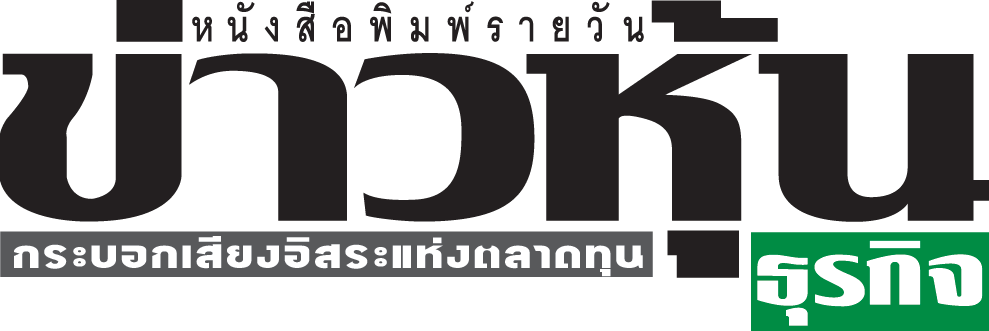
Fitch Assigns A-(tha) on IRPC’s ฿28Bn Medium-Term Debenture Program
Fitch Assigns A-(tha) on IRPC’s ฿28Bn Medium-Term Debenture Program.
Fitch Assigns A-(tha) on IRPC’s ฿28Bn Medium-Term Debenture Programme
Fitch Ratings (Thailand) has assigned IRPC Public Company Limited (IRPC)’s (A-(tha)/Stable) upcoming THB28 billion medium-term debenture programme a National Long-Term Rating of ‘A-(tha)’.
Debentures under the programme will be senior unsecured with a maturity of up to 30 years and will be rated at the same level IRPC’s National Long-Term Rating, as they will constitute its direct, unsecured, unconditional and unsubordinated obligations.
KEY RATING DRIVERS
Weakened Credit Metrics: Fitch expects IRPC’s credit metrics to remain weak in 2020-2022. FFO net leverage increased substantially to 8.7x in 2019 (2018: 3.0) due to a weak refining margin and petrochemical product spread. Meanwhile, EBITDA and FFO dropped by 68% and 73%, respectively. Fitch expects IRPC’s financial leverage to weaken further in 2020, gradually recovering to below 5.0x by 2022. Waning demand due to the coronavirus pandemic will pressure refining margins in the near term, although we expect an improvement over the medium term. Petrochemical spreads are also likely to be pressured by large new capacity additions.
Project Delay: IRPC has postponed a final investment decision on its paraxylene project to 2021 and said it will reconsider its investment and ownership of the project. As a result, we have not factored this investment into our forecasts. The project cost was initially estimated at USD1.1 billion; if IRPC undertakes the project with debt financing, its FFO net leverage will increase to above our forecast. Fitch expects capex to stabilise at about THB6 billion a year in 2020-2022 without the project. Current capex is mainly for upgrading plants to meet EURO5 emission standards, a floating solar project, small expansion projects and maintenance.
Credit Terms to Increase Further: IRPC plans to increase credit terms to 90, from 60 days, on its crude purchases from its parent, PTT Public Company Limited (AAA(tha)/Stable), in 2020 to manage financial leverage during the period of weak operating cash flow. This should lower its working-capital needs and debt requirements. IRPC had expanded the terms to 90 days in 2015, a time of high financial leverage and heavy investment. Fitch expects the term extension to continue until at least end-2022. Credit terms are generally reviewed annually and can be extended by mutual agreement, according to the company.
Improving Business Profile: Fitch expects IRPC’s margin to improve over the medium term, supported by increased output of higher-value-added products. The start of its polypropylene expansion project and polypropylene inline compound project should boost its margin, as these products have wider spreads than commodity-grade polypropylene. IRPC announced a joint-venture agreement with a Japanese petrochemical company to produce polypropylene compounds for the automotive sector, which should expand its end-user base. Fitch expects committed project upgrades to enhance profitability upon completion, scheduled for 2022.
Fully Integrated Refinery: IRPC has a competitive advantage as a fully integrated refining and petrochemical company with expertise and a long record in Thailand. Its recent and planned investments will pave the way for further integration into petrochemical products. Vertically integrated producers enjoy cost advantages, a broader product range and lower earnings volatility relative to non-integrated operators.
Highly Cyclical Business: IRPC’s credit profile is constrained by the inherent cyclicality of its businesses and the concentration of its production facilities at one site. The volatility of oil prices, refining margins and petrochemical spreads, as well as high working-capital requirements, could significantly affect earnings and cash-flow generation.
Linkages with Parent: IRPC’s National Long-Term Rating incorporates a two-notch uplift from its Standalone Credit Profile (SCP) of ‘bbb(tha)’ to take into account its moderate linkages with PTT. Fitch believes the petrochemical and refinery business, in which IRPC is a vital component, has increased in strategic importance to PTT after the business was reorganised over the past few years. The petrochemical and refinery business accounted for around 28% of group EBITDA in the past three years.
IRPC is PTT’s key petrochemical producer, focusing on downstream and naphtha-based production. PTT regards IRPC as its downstream specialty petrochemical vehicle. Its importance was demonstrated by PTT’s extension of credit terms for crude supply to IRPC to alleviate cash flow pressure during the subsidiary’s high investment period.
DERIVATION SUMMARY
IRPC’s SCP reflects the integration of its refining and petrochemical operations. Its business profile is moderate relative to that of Thai downstream oil and gas peers, while its leverage is high. IRPC has a larger operating scale than Esso (Thailand) Public Company Limited (bills of exchange rating: F2(tha)) in terms of refining capacity, revenue and EBITDA. IRPC has larger petrochemical operations but ESSO has an oil-retailing business. IRPC has better margins but slightly higher leverage.
IRPC’s refinery is less complex and smaller than that of Thai Oil Public Company Limited (TOP, AA-(tha)/Negative, SCP: a(tha)), but IRPC has larger petrochemical operations. TOP has a stronger balance sheet over the long term and a better operating profit margin due to a higher utilisation rate at its plant.
IRPC has a much smaller operating scale and petrochemical operation than PTT Global Chemical Public Company Limited (AA+(tha)/Negative, SCP: aa-(tha)). It is also weaker in terms of leverage and operating profit margin.
KEY ASSUMPTIONS
Benchmark Brent crude price at USD35/barrel in 2020, USD45/barrel in 2021 and USD53/barrel in 2022, with IRPC’s crude procurement costs adjusted for applicable premiumsGross integrated margin to weaken in 2020 partly due to stock loss from the sharp oil-price drop in 1Q20, to improve gradually in 2021-2022Capex and investment of THB6.2 billion a year over 2020-2022Credit terms on crude purchases to increase to 90 days, from 60 days


